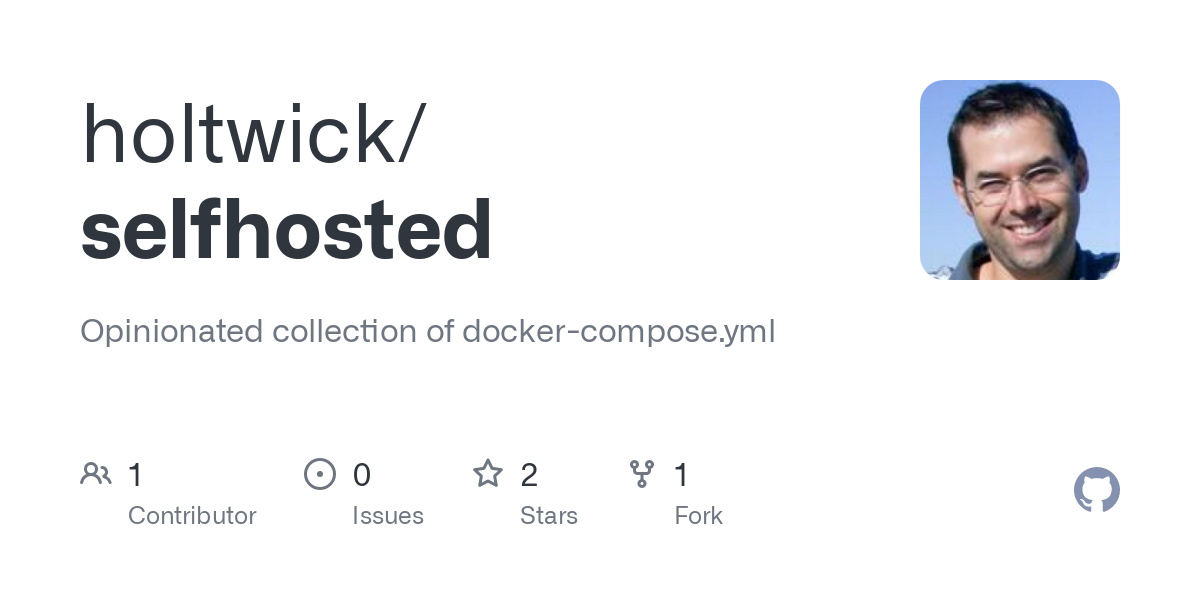Mastodon: @canpolat@hachyderm.io
- 4 Posts
- 16 Comments
I know you said “self hosted”, but if you are interested in an Android app, Google Play Books does most of what you want, I think. You can upload your books, and read them on any device (with offline capabilities). But this is the Self Hosted community, so I will show myself out.
I would add Ars Technica to that list and call it a day.
For programming I follow YouTube channels of the conferences relevant for my tech stack (YouTube natively supports RSS). They are generally 1 hour talks but it’s a great way to stay up to date.

 3·1 year ago
3·1 year agoOk, maybe I misunderstood your question. I though you were proposing
#instead ofsudoand I meant to say that being explicit is better.

 1·1 year ago
1·1 year agoThat sounds cool. Thanks for the recommendation.

 1·1 year ago
1·1 year agoWhat about the packages that are not available in flatpak? I assume there must be some packages that are only available in certain corners of the internet?

 1·1 year ago
1·1 year agoThanks

 1·1 year ago
1·1 year agoAre there any other distros that are flatpak-only?

 131·1 year ago
131·1 year agoI don’t work much with Linux systems these days, but I would vote for
sudoover#. Two reasons:- It’s easy to overlook the prompt. That part is basically “some characters before the actual command”, so I don’t normally pay attention it.
#is also used for comments. I think it would be confusing to use the same character for two widely different things.

 7·1 year ago
7·1 year agoDid you take a look at write freely or other blogging software with native ActivityPub support?
I use InoReader. Most of the sources I want/need has RSS feeds. For the rest I create feeds using Feed43. I use it daily and that’s how I get news, YouTube videos, Twitter feeds (via Nitter), Reddit/Lemmy posts.
I was upset when Reader was killed. But looking back and seeing what Google has become over time, I think it was for the best. Now we have entire companies that only do one thing: RSS, and they are good at it. If Reader was still a thing, I’m afraid it would have extinguished RSS.
Names matter, and Reader told everyone that it was for reading when it could have been for so much more. “If Google made the iPod,” he says, “they would have called it the Google Hardware MP3 Player For Music, you know?”
This is funny, but I think Reader was a good name. At least it reflected what I want to do with the product.

 2·1 year ago
2·1 year agoYou can just build a time machine and commit it before the other one. Problem solved.
I think, in the short run, they are hoping some percentage of Rocky/Alma users will migrate to RHEL. I don’t believe they are really thinking about the long term.
Is Red Hat trying to kill downstream clones?
We cannot speak to Red Hat’s intentions, and can only point to the things they have said publicly. We have had an incredible working relationship with Red Hat through the life of AlmaLinux OS and we hope to see that continue.
The answer is “yes”. IBM is being IBM. They bought CentOS and hoped that would be the end of it, but then Rocky and Alma appeared. I don’t know why they didn’t foresee this happening.
I wouldn’t expect it to impact Fedora, but this will probably be significant for Rocky/Alma.





Here is the link to the original website (an NGO that monitors blocked websites in Turkey): https://ifade.org.tr/engelliweb/distrowatch-erisime-engelledi/
And here is the Google translation of the text on that page: